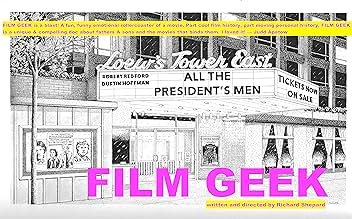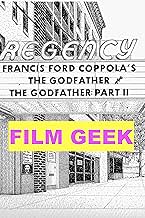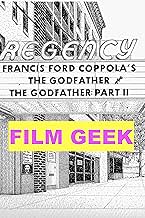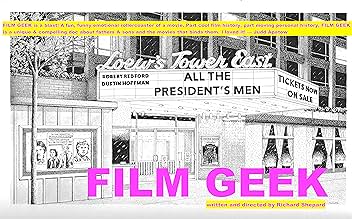A filmmaker explores his movie obsession and father's influence through 200+ film clips and personal archives, seeking to understand his cinematic roots.A filmmaker explores his movie obsession and father's influence through 200+ film clips and personal archives, seeking to understand his cinematic roots.A filmmaker explores his movie obsession and father's influence through 200+ film clips and personal archives, seeking to understand his cinematic roots.
Dustin Hoffman
- Self
- (archive footage)
Errol Flynn
- Self
- (archive footage)
- (uncredited)
Frederic Forrest
- Self
- (archive footage)
- (uncredited)
Lorraine Gary
- Self
- (archive footage)
- (uncredited)
Jackie Earle Haley
- Self
- (archive footage)
- (uncredited)
Mark Hamill
- Self
- (archive footage)
- (uncredited)
Tippi Hedren
- Self
- (archive footage)
- (uncredited)
Audrey Hepburn
- Self
- (archive footage)
- (uncredited)
- Director
- Writer
- All cast & crew
- Production, box office & more at IMDbPro
Featured reviews
'Film Geek' tells the story, first hand, of Richard Shepard's memories growing up in NYC in the 70s, developing a fanatical attachment to cinema in the process. Shepard details his numerous experiences as a child and teen trying to live his life vicariously through the moving pic, and through the lens of a NYC young denizen. Some of it was interesting, some not so much. He tends to pontificate periodically. I grew up in NYC during that time as well and though my movie watching wasn't as frequent as was his, I felt he left a lot out that dealt directly with the Big Apple. Shepard gets lost in himself, his subject and his experiences fairly often, much to the distress of some of his audience. I'm not sure why TCM aired this picture, especially during the coveted 8:00 pm Sunday night time frame. Go figure ! 'The Letter' was being shown simultaneously on another movie channel, so I was crisscrossing between both. In the end, 'The Letter' triumphed. I also read that Shepard now lives in LaLa land. That kind of made me scratch my head and laugh at this self-described New Yorker.
Film maker Richard Shepard tells of his obsession with movies during the 1970s and 1980s and his relationship with his mysterious father.
I just saw this at the Film Forum in NYC. It is great documentary for film fans. Shepard has directed some TV and only a few films, The Matador (2005) with Pierce Bronson is probably the most famous.
Shepard talks of his father who got him into film and he never knew what his dad did for a living, but he did mix with some shady people.
The film clips are amazing from over 200 films, running the gamut from Citizen Kane to porno.
He also give some extra time to some films that really impressed him like King Kong (1933), The Taking Of Pelham One Two Three (1974 and Rocky (1976).
Shepard is a New Yorker so he shows the city in film during the 1970s and 1980s, with clips of gritty grimy era of The French Connection and Death Wish.
He also pays tribute to long gone NY movie theaters that I myself have been to.
If you can, try to seek this out.
I just saw this at the Film Forum in NYC. It is great documentary for film fans. Shepard has directed some TV and only a few films, The Matador (2005) with Pierce Bronson is probably the most famous.
Shepard talks of his father who got him into film and he never knew what his dad did for a living, but he did mix with some shady people.
The film clips are amazing from over 200 films, running the gamut from Citizen Kane to porno.
He also give some extra time to some films that really impressed him like King Kong (1933), The Taking Of Pelham One Two Three (1974 and Rocky (1976).
Shepard is a New Yorker so he shows the city in film during the 1970s and 1980s, with clips of gritty grimy era of The French Connection and Death Wish.
He also pays tribute to long gone NY movie theaters that I myself have been to.
If you can, try to seek this out.
Film maker Richard Shepherd takes us on a tour of his mysterious loan-shark father, his Jacqueline-Kennedy-beautiful mother, and the movies he saw from the middle of the 1970s and the 1980s as he grew up in the seemingly endlessly crumbling New York City.
It's ninety-five minutes of him talking, with clips and stills, and cartoons and at first I hated it. Then, as it went on, I realized that this was his equivalent of Tavernier's Voyage à travers le cinéma français and the reality of film-making good and bad: there's something in it for the person who truly loves movies. Because if you love movies, you love the bad stuff as much as the good, the 95% that's crud informs the remaining 5%, and indeed sometimes has fleeting moments of greatness. And don't let anyone tell you different.
It's ninety-five minutes of him talking, with clips and stills, and cartoons and at first I hated it. Then, as it went on, I realized that this was his equivalent of Tavernier's Voyage à travers le cinéma français and the reality of film-making good and bad: there's something in it for the person who truly loves movies. Because if you love movies, you love the bad stuff as much as the good, the 95% that's crud informs the remaining 5%, and indeed sometimes has fleeting moments of greatness. And don't let anyone tell you different.
If you are a cinephile, you must see this film. In it, Director Richard Shepard documents a sizable portion of his life as he presents a love letter to his father, films, his mother, New York City, and the decades of his youth, in that order perhaps.
He liberally uses film clips as he narrates this film, laying out his life like a narcissist on a therapist's couch. His commentary is witty, perceptive, and knowledgeable.
Because you love film, you cannot stop yourself from identifying (to yourself or out loud) the films that appear in snippets throughout. Because he details his growth from childhood's first film to cineaste, you find yourself thinking of the influences that created and nurtured your own love of film.
When he discusses "Wait Until Dark", "Breaking Away", and "The Verdict", I identify with his feelings. When he delights in meeting or seeing actors on the street or in a store, I mentally catalogue my own encounters, like the time I could have talked to Paul Newman at the intermission of a dance performance, but I didn't want to interrupt his life for my own curiosity (but I still kick myself for not telling him how much I enjoyed "Absence of Malice"). When he talks of the movie theaters where he experienced films, I remember the myriad of theaters I frequented over the years, though they existed in suburbia, not NYC.
Because of his recommendations, I added a few films to my watchlist.
Shepard's father was his curator to the world of film. He has reminded me of my own father's opinions of film that influenced me.
Watch this film and relive your own life as a film lover. And be reminded that cinema is a rich world that affects all of us on so many levels in so many ways.
He liberally uses film clips as he narrates this film, laying out his life like a narcissist on a therapist's couch. His commentary is witty, perceptive, and knowledgeable.
Because you love film, you cannot stop yourself from identifying (to yourself or out loud) the films that appear in snippets throughout. Because he details his growth from childhood's first film to cineaste, you find yourself thinking of the influences that created and nurtured your own love of film.
When he discusses "Wait Until Dark", "Breaking Away", and "The Verdict", I identify with his feelings. When he delights in meeting or seeing actors on the street or in a store, I mentally catalogue my own encounters, like the time I could have talked to Paul Newman at the intermission of a dance performance, but I didn't want to interrupt his life for my own curiosity (but I still kick myself for not telling him how much I enjoyed "Absence of Malice"). When he talks of the movie theaters where he experienced films, I remember the myriad of theaters I frequented over the years, though they existed in suburbia, not NYC.
Because of his recommendations, I added a few films to my watchlist.
Shepard's father was his curator to the world of film. He has reminded me of my own father's opinions of film that influenced me.
Watch this film and relive your own life as a film lover. And be reminded that cinema is a rich world that affects all of us on so many levels in so many ways.
10Sees All
I loved this movie! It's an autobiographical documentary by writer-director Richard Shepard about growing up in New York during the 70s and 80s when New York was at its worst period-filthy, crime-ridden, and spooky. But what New York had going for it then was all these wonderful movie theatres that showed foreign movies, classic films, and revivals along with the new releases. Shepard practically spent his entire teen years in those theatres that are now virtually all gone. Shepard's film was composed during the covid lockdown entirely from clips of other movies, along with an occasional drawing. It's about a boy being in love with movies. His mentor was his father, a mysterious man who didn't seem to have a regular job and went by several aliases. The movie is as much about his relationship with his father as much as it is about his relationship with movies. This is very much a homemade movie, lovingly cobbled together from the resources available. (He recorded his amateurish, sing-songy voiceover narration on his cellphone.) But the ultimate result is pretty dazzling. It's charming, delightful, funny, and (in some ways) profound. I'd recommend it to anyone who loves the movies and/or New York. This will be a classic. How could I not give it a 10?
Did you know
- TriviaThe closing credits lists two hundred three movies that are shown in this film.
Details
Box office
- Budget
- $250,000 (estimated)
- Runtime1 hour 35 minutes
- Color
Contribute to this page
Suggest an edit or add missing content


























